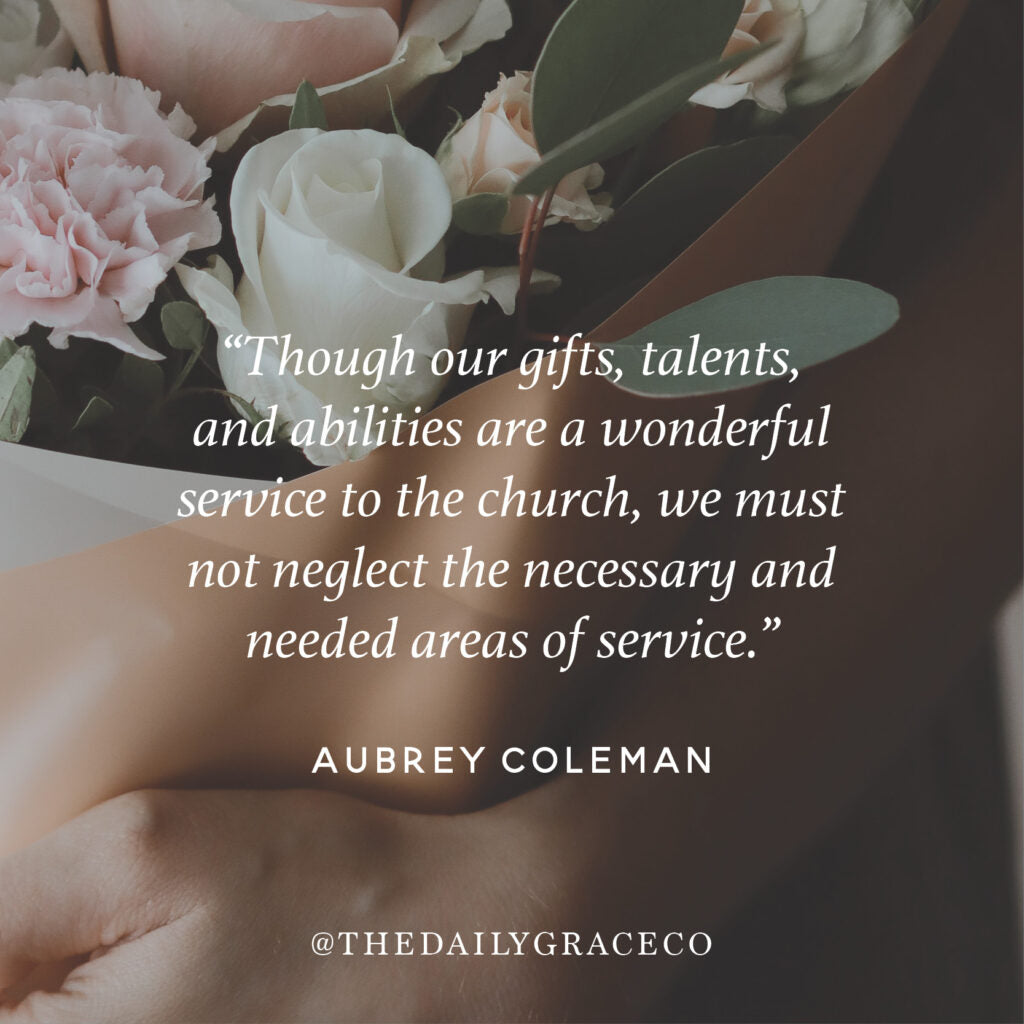As we find ourselves invested in a local church, we will likely question where we should serve. For some churches, there are numerous options and opportunities presented, and we want to choose wisely. For some churches, there are few presented options, but we see needs in the church that can easily be met by its members. For other churches, maybe there are no options presented, and you find yourselves looking for some way to give yourself in a tangible way to serve your church. Even in what's presented, we may be tempted to choose only what is most appealing, appreciated, or enjoyable. It's important to think through how we will contribute our time and giftings to the building up of the local church.
Biblically, we are instructed to serve the body of Christ. Paul begins Romans 12 by encouraging us to serve sacrificially, out of the grace offered us in Christ Jesus. He continues by emphasizing that we need each other to represent the full body of Christ. We are each representatives of a whole, with different gifts and abilities to contribute. In Ephesians 4, we again see instruction to serve as one body, with one Lord, one hope, and one faith. Throughout the chapter, we are reminded of the role of the church to equip the saints for the building up of the body of Christ. This is enacted through sound biblical teaching, fellowship with one another, and doing life together. This is an essential role of a Christian, committed to serving one another and building one another up. We see this even more practically through studying the Bible together, showing hospitality, sharing the gospel, confessing to one another, praying for one another, bearing one another's burden, and speaking truth in love. These are essential ways we are called to serve the local church, which should be initially considered.

With a foundational understanding of our biblical role in serving the church, we can ask the question, "Where am I needed?" This type of service could meet a temporary need or a longer-term need. Thinking this way challenges us to understand our church in a more intentional way. Where is service lacking? Is it lacking childcare volunteers? Is
Unlock a 10% off coupon!

The last way you can think about where to serve is where you can best use your gifting. This way is intentionally listed after serving as we are biblically instructed to serve and serving where we are needed. The reason for this is that we are naturally inclined to showcase and express our gifting. God created each of us uniquely as an expression of His nature! There is a need for each of us to contribute to the body in a specific way. However, there can be a temptation to only do that. Though our gifts, talents, and abilities are a wonderful service to the church, we must not neglect the necessary and needed areas of service. We can serve in our area of expertise while still being available to contribute in ways that most honor the Lord and serve others.
Ultimately, our greatest concern as we seek to serve is how we can best contribute to the building up of the local church–whether volunteering in childcare, greeting new families on Sundays mornings, cleaning up after events, leading a Bible study for high school students, or making sure meals are provided to families with newborns. There are so many ways we can use our efforts to that end, as long as it remains the primary reason for finding our place to serve.











